Whatever Happened To The Camgirls? An Internet History With Tony Pierce
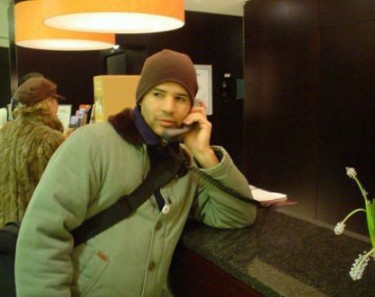
Before Flickr, before Tumblr, before Instagram or Chatroulette or sideboob slideshows on corporate media websites, there was TonyPierce.com. From his East Hollywood bachelor pad at the dawn of the century, Tony combined his own L.A. snapshots with pilfered celebrity photographs, found objects, PG-13 pictures submitted by the camgirls, and freeform essays on his favorite subjects: his bus ride to work, Howard Stern, the Chicago Cubs, 19-year-old girls in their underwear, Charles Bukowski, the Los Angeles Times. Tony went pro as editor of LAist.com and then blog editor at the Los Angeles Times, where he created and edited iconic blogs such as L.A. Now and Hero Complex. We talked about a Web that was extremely personal and is almost all gone now — very little of this homemade Internet is even preserved by the Web Archive today. A glimpse of that Web in the early 2000s can still be seen on Pierce’s old links page, last updated in 2006.
Ken Layne: A long time ago in a rundown old town called San Francisco, people were making strange new things for the new World Wide Web. There was HotWired and Buzznet, and you knew all those people, and you were inventing your own thing at the time called LICK. What was LICK?
Tony Pierce: I was working for Philips/Magnavox and living in Atwater Village, and I got transferred to San Francisco because my company had just partnered with Microsoft on a set-top box called WebTV. And the dude in SF didn’t understand the computer world. Not that I did, but I did have a 28.8 modem and I used it for a variety of (now) super lame things like bulletin boards.
Ken: Oh bulletin boards were the best! I did a couple of those off my home phone as a kid. Weirdos would call up your Kaypro.
Tony: Ahahah yes, I sold Kaypros at Federated Group around 1986. To me, that the first real “laptop.” Did you have that one or a desktop?
Ken: I had the giant beige desktop with two 5–1/4 floppies. My friend R. Andrew Rathbone — who preceded me at ComputorEdge magazine and is the author of so many “For Dummies” tech books — had the first suitcase Kaypro I ever saw, around 1985. It was fantastic.
Tony: Yes! We sold them for about $2K.
Ken: That’s what I paid, with in-store financing! So you’re doing bulletin boards, probably exchanging .GIF nudies at about a picture per hour, and now you need to show these people what the Web was about.
Tony: Well, mostly I was chatting. The nudes, as you say, were waaaaay too slow to come across the transom. When I got to SF, Marc Brown showed me some upskirt news groups and basically said, this is the World Wide Web. And I was blown away. He got on it right away and made Buzznet.
Ken: Creepshots made the Web, great. So it’s 1994–95 and the computer people are abandoning text-based or terminal dialup stuff like SFNet, which was basically chat and email and some UFO .txt files, and they’re creating stuff like Buzznet and HotWired.
Tony: Yes everything was exploding right in our midsts. It was so exciting and fascinating — before this, you’d make a zine. Now you could do it fast, in color. That’s how we got LICK. Marc was all, “You know about ‘journalism.’ What can we do to make Buzznet better?” And I said well, make three categories: Sex Drugs Rock, with three huge buttons on the home page, and let all your stories fall under those categories. He said, “That’s crazy. You should just make your own thing and wrap it in a brown paper bag.”
Ken: And 20 years later that is VICE’s motto.
Tony: Ahahah I love Vice. But I said FINE I WILL AND I WILL CALL IT LICK.
Ken: So LICK was a rejected Buzznet concept? (And we should say here that Buzznet went from webzine to photo/social site to music/social site to who knows what, it even bought Idolator from Gawker.)
Tony: It also bought Stereogum, and many other things. I would say LICK was a rejected partnership. I wanted to help Buzznet, not do my own thing.
Ken: So you were forced into Web publishing, for the usual reason of your ideas being too direct or kinky. LICK was also a very arty thing, like a underground magazine, and not at all like the kind of universal web news/blog/magazine formats we see everywhere now.
Tony: Thank you, yes.
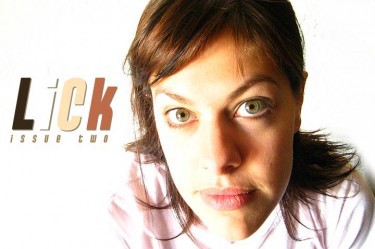
Ken: This was a time of what I will call Romantic Grunge, and LICK was very romantic. I remember lots of found stuff (notes, photo strips from actual photo booths, lipstick on envelopes). It went very well with the band That Dog.
Tony: I really liked handmade zines of the 80s and this was hopefully a modern version of that. But unlike punk zines i wasn’t really angry about anything. Meanwhile, you could swear and show boobies and be as free and wild as you wanted, because very few could see it.
Ken: Right, even in San Francisco about one in five people we knew had a computer at home.
Tony: And it was years before you could get a decent speed.
Ken: People would actually gather around somebody’s giant desktop Mac in the parlor of a moldy apartment and watch Web pages render sloooowly.
Tony: Yes. I spent tons of money to get ISDN in our victorian on Haight, and even that barely worked.
Ken: Do you have any idea how much traffic sites like LICK got, or Buzznet, or even HotWired? For my own sites I would just guess by counting the average number of files on a page and then dividing the total number of file requests, this was maybe 1996.
Tony: No idea. Eventually, my site TonyPierce.com got some counter thing, but it was hard to believe when it said I was getting like 900,000 page views a day. And I was all, don’t think so bro.
Ken: That would’ve been the entire population of people with Internet access.
Tony: True, but there was very little competition. I won on “Anna Kournikova pics” for like two years.
Ken: And you’re evangelizing for Microsoft at this point, going around and teaching the car stereo bros at Circuit City what the Internet was about, so they could sell these weird “set top” Web TV boxes that showed the Internet on your television.
Tony: In Silicon Valley, ironically enough.
Ken: I remember you guys sitting around the parlor at the Haight House, with a wireless keyboard, looking up baseball stats.
Tony: Yes! For some applications, watching the Internet on your TV was awesome, even then. We had leapfrogged all the way to 56k modems. And I’d tell the electronics store sales guys that if they wanted to look at Cindy Crawford pictures, they’d probably prefer to see them on a 27″ Sony XBR than on their whopping huge 19″ computer monitor. Even if they couldn’t sell a WebTV, if they knew what it was, they could establish that they weren’t dummies… which would help them on the product they could sell: the camcorder, or projection TV. And if you could get a software engineer with nothing but disposable income to be a regular customer, and tell his friends about you, then you would be a very successful Circuit City or Good Guys salesman.
Ken: Ah, so a kind of early Geek Squad approach. Because the car stereo guys were not the type you’d ever see behind the Genius Bar today.
Tony: True. I was just trying to get them to be 10% better at their job. Because that makes the difference in most situations.
Ken: So LICK had few readers, but you move back to Los Angeles —
Tony: In L.A., I made the busblog because blogging had overtaken web magazines. And weirdly, the busblog became very successful. My favorite things to read back then were these super interesting women, many of whom got very little traffic. They were called “cam girls.”
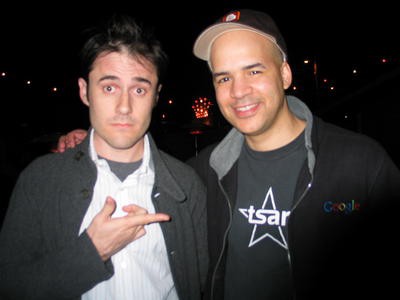
Tony and Blogger’s Evan Williams, 2005.
Ken: So you drifted back down to Los Angeles, and here you start doing Web stuff in the midst of all this 9/11 craziness, and you’re interviewing random blogger girls on AIM and posting huge pictures for the time, with homemade slideshows we clicked through to advance. I should also mention here that you’re also one of the very first African-American web publishers and bloggers, maybe the first, and in this way you are very nearly Barack Obama in terms of historical achievement.
Tony: Barack is only half black.
Ken: That is true, and he’s also morally weak.
Tony: And, often, I look all white.
Ken: Only since you shaved off your ‘fro.
Tony: Very true. Thanks OBAMA!
Ken: And unlike a lot of people trying to be all George Will on their blogspot, you wrote without regard for capitalization and without any interest in impressing editors at the Wall Street Journal or whatever. You did SXSW panels and were interviewed by the New York Times. Not only did busblog have a big audience, but camgirls sent you money and presents.
Tony: I was extremely lucky. We all were because there were no rules, no expectations. But yes, teen girls, and young women were the ones i reached out to to submit things for the new, improved LICK. I said, “All of this is anonymous, so write all the things you can’t write on your own fabulous blogs.” And I hosted it and hyped it. And it was beautiful. One young lady from Austin even designed all the pages individually, and that gave it its super weird arty look. She knew CSS so was able to have these texture-y backgrounds and layouts. It was perfect training for running LAist.
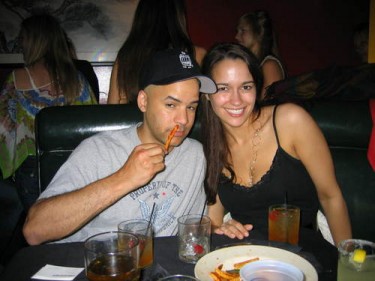
Ken: So the busblog also produces two books of your own prose, right? And people bought these! (I bought them!)
Tony: Three: Blook, How to Blog, and Stiff.
Ken: The monetizing of the Web is really happening in 2003. It’s no longer just a business of selling internet access and modems and AOL subscriptions. There are startup businesses that are exclusively about web content, and these chains of urban blogs appear. Gothamist is like early Gawker.com, but they go all local and start blogs in different cities. When did LAist launch, and what was it before you hired.
Tony: Not sure when LAist launched. 2004? They hired me on 6/6/06. It was getting about 100,000 page views a month, probably because they were paying their very capable editor almost nothing. But they gambled that I could get them traffic that would turn into ad sales that would pay for my salary. And I worked my tail off to make it work.
Ken: What was your editorial model for LAist?
Tony: The model at LAist was Gothamist plus Spin plus High Times plus Food Porn. I wanted to beat Gothamist. And Gothamist didn’t do so great with music (no site did) and they sure as hell didn’t have weed reviews. Jake and Jen were the best bosses ever.
Ken: It had a very Los Angeles feel, which was not a common geographical genre on the Internet in 2006.
Tony: Blogging LA and LA Observed were on top before LAist starting paying me. And in less than a year they were well behind us. For most of the time I was there, we had 20 to 30 posts a day, which crushed our competition who were averaging less than 10 a day. Plus, our posts were more edgy. My goal was to be super unpredictable. Any time you dialed up that URL, you never knew what you’d see, but it would be interesting.
Ken: Newspapers were still incredibly bad at the Web. And we had a pretty dull daily in Los Angeles that was part of a (then) big and powerful national media company called Tribune Co.
Tony: And they had 20 blogs by 2006. I had been obsessed by the LAT since 1984. And I would write to the paper all the time via the busblog.
Ken: “dear los angeles times ….”
Tony: And one day someone “leaked” a memo from the LAT to LA Observed with a list of their top 5 blogs and all the traffic they were getting. And LAist was creaming the LA Times’ best blog? At that same moment, Matt Welch was leaving the Times for some crazy reason. So I said, Welch, you can’t leave, you’re my in at the Times. And he said, “Write to Meredith, she runs the website here. She’s awesome.”
Ken: He was leaving for National Review’s “The Corner,” if I’m remembering correctly.
Tony: Ahahah nooooooo. But wouldn’t that have been great!
Ken: Oh right, he got a book deal! To write about how John McCain’s new nickname was “Walnuts.” And then you are hired as the Director of LA Times blogging.
Tony: Director, I wish. “Blog Editor,” which was way better than I expected. I got to run all the blogs.
Ken: You created blogs, hired writers, and ran them all.
Tony: I had only expected to maybe write on one. But yes, dream job come true.
Ken: What are some of the blogs you launched there?
Tony: L.A. Now, Hero Complex, and Framework were among about 20 that I launched. All of those did over 10 million a month when I was relieved of my duties.
Ken: Good lord. Is that visitors?
Tony: Page views. All the blogs combined, during my last month at the Times, did 72 million. When I started, they were doing 3 million per month.
Ken: Page views, so probably a third of that is visitors?
Tony: Yeah, maybe half. We only had two blogs that were capable of doing photo galleries.
Ken: From 3 million to 72 million page views a month. That’s so much bigger than the actual newspaper at that point.
Tony: Oh yeah. Subscribers were around 1 million for print on Sundays.
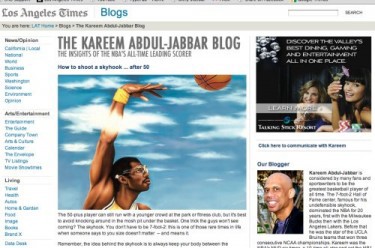
Ken: You got some of your heroes to blog for you. Some of America’s heroes, in fact. Kareem.
Tony: The Kareem Abdul Jabbar Blog was one of my first. Crazy. Dude’s taller than you could even imagine. And sooooo smart. He would and could write about anything.
Ken: I loved it. His L.A. history and jazz history stuff was fantastic.
Tony: Plus he knows Everyone! So if something happened like Herbie Hancock winning all the Grammys that year — boom, the next day we have a pic of Kareem with Herbie. But what I like best was Kareem always brought things back home to race. Like a G!
Ken: Why would a black man “play the race card,” Tony? Don’t they know it makes old white guys feel insecure?
Tony: Ha! Anyway, Kareem wrote every day for a while. It was a dream. He would be a great columnist for the LA Times one day. Part of him is, “I don’t give a fuck” and the other part is, “I am so interested in Everything.” Plus the people love him.
Ken: The Tribune Co. has not been given much credit for being an innovative or bold company, except maybe in TV (?), but during this time it was a very creative online world. To this day, some of those blogs are wildly different from the LAT newspaper site.
Tony: All of that credit is due to Meredith Artley, who now runs CNN.com. She allowed us to fly our freak flags.
Ken: Hero Complex is a lot like io9.com, for example, and L.A. Now is so much zippier and livelier than most big city newspaper metro sites.
Tony: Hero Complex and Framework were the two blogs I was allowed to do on WordPress. And L.A. Now is a beast. It was LAist, but with professional and experienced journalists.
Ken: After the L.A. Times used you up, you did a surprising thing, to me: You went to a public radio blog, KPCC. Now that’s one of the country’s better public radio stations and I like it fine, but it is not exactly Tony Pierce with his sex poems to Mariah Carey and pictures of 19-year-olds peeking out of bathtubs.
Tony: When I was laid off from the Times, I wrote one last letter to the paper. And it went semi-viral. KPCC and other places came out of the woodwork, and promised me all these great things. KPCC promised me the most. Even after I told them about who I “really” was.
Ken: You could wear a hat like Patt Morrison, you could smoke out in the newsroom, you could play that terrible Ol’ Dirty Bastard all the time.
Tony: OMG ODB.
Ken: I read a lot of KPCC online, because I read all these things — KQED is the other one I read the most — and it wasn’t really sparkling with Internet magic.
Tony: KPCC is so loved here. I’ve never seen anything like that before. Pure love.
Ken: And I guess they are going through some “management changes” which means who knows, but yeah old rich people in Pasadena LOVE their KPCC.
Tony: And young not-so-rich people, and middle-aged middle classed!
Ken: It’s like Rush Limbaugh for people who can do crossword puzzles and don’t hate Mexicans.
Tony: Yes! I guess! (I cannot do crosswords, so I don’t know.)
Ken: I am just making up the demographic here, based on people I see listening to KPCC at stoplights. But their windows are rolled up so the only ones I hear are the old people with their radio really loud. (I’ll be with you soon, old people.)
Tony: (I’m already there.) Yes, there were a bunch of changes in the last six months. Patt Morrison had her show taken away, Madeline Brand bolted, and the blog strategy changed significantly, ending in my demise.
Ken: Why don’t you become a consultant and make 10x the money to do what you’ve done on staff?
Tony: Everyone tells me i should consult. But I’m a weirdo, I like being part of a company that already exists. It all goes back to that first tale about Buzznet. I don’t want to do my own thing, I wanna help.
Ken: You’re one of those team players, aren’t you? All loyal to the cause and etc.
Tony: I DONT WANNA MAKE LICK. EVEN THO LICK RULES. I WANNA HELP ROLLING STONE.
Ken: Right. This has something to do with the Chicago Cubs?
Tony: Yes. Most people’s psychological issues goes back to their mom or something. Mine go back to the Cubs. Reinventing the failed, fixing the forever broken, healing the phoenix.
Ken: Whenever I see BuzzFeed I think of you. It seems a very Tony Pierce aesthetic: Enthusiastic, goofy, fun, very populist. But it also seems mechanical, which I guess is a result of a huge amount of content being suctioned off the Internet, reframed, and then robotically maximized for SEO.
Tony: That’s very kind of you! I love BuzzFeed. It is a lot of what I have been doing on the busblog — lots of pics, less interest in long narrative, quick lists of lowbrow but fascinating pop culture. I just wish they’d hyperlink the pics to the original sources. (Their “via” link is sooo tiny.)
Ken: They don’t want to send traffic away. The habit of gracious linking is a moral system that did not survive the first decade of the 21st century. But Buzzfeed does appear to be throwing everything at the wall to see what sticks, which is never a terrible idea when there’s no real cost to having another section on a website.
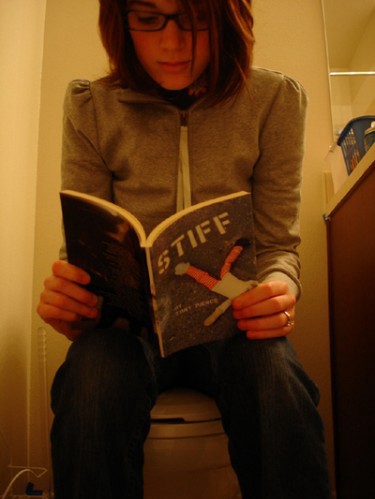
Tony: I love that idea of TRYING THINGS.
Ken: What happened to the camgirls? It all seems kind of innocent today, although they were rudely called “cam whores.”
Tony: The original cam girls were amazing. they designed their sites, they wrote very honestly. Like most good things on the web, Facebook and Instagram took people away from beautiful design and websites and blogs. Also, Google pretty much gave up on Blogger.
Ken: At least Twitter lets you set a background, not that anybody ever looks at profile pages. And Tumblr has creativity, but again it’s mostly of the “pick the variety of options here to show your personality.”
Tony: Yes. True cam girls can make actual money nowadays via sites like myfreecams.com. So I’ve heard.
Ken: But what the cam girls did was code their pages, and put up generally SFW pictures, and write very teen-diary kind of stuff with song lyrics and sparkly things, and they had Amazon wishlists you could click through to send them presents.
Tony: True, the old school cam girls didn’t get naked. And they rarely even had cams. They’d put a small square on the corner of their page with their photo, simulating a cam. But it never moved, and it was a PG situation. One of my faves from that era was 15-year-old Leah, who then turned into Leah Muse, who now does great wedding photography in Austin, and of course has a kickass site.
Ken: Oh she was great on that blog, growing up bohemian in a dull little Texan town with nothing but a McDonald’s, posting Pavement lyrics.
Tony: Yes! “Spit on a Stranger” was her blog.
Ken: We are now 20 years into the World Wide Web. That’s like from Elvis to the Sex Pistols, or Chuck Berry to Hotel California. What was good that we lost, and what was bad that we lost, and where is the secret diary part of the Internet today, the equivalent to zines or underground radio?
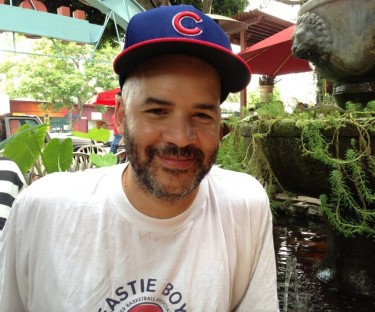
Tony: We lost the blogosphere. It was vibrant and rich and ever changing and filled with interesting design and BlogAds and PayPal and Amazon wishlists. That’s pretty much gone. Today it feels like jazz in the ’80s compared to jazz in the ’50s. Those who are doing it know that this isn’t the time to be doing it. But either they can’t stop or they’re doing it for the right reasons. That’s the good thing, if you’re blogging in 2013 you’re probably doing it out of love — certainly not for audience or money. So that’s good.
The only things like underground radio are podcasting and YouTube — both DIY, and you can get an outrageously large audience if you do it right. But zines never cared about big audiences. They just wanted to reach a niche, and YouTube and podcasts can get that niche going really nice.
Another secret world are the subreddits in Reddit: they’re basically the best evolution of the message boards and 4chan. No matter what you’re interested in, there’s a subreddit and anyone can chime in. Since most bloggers don’t post every day, a group subreddit might actually be the best place for many people to communicate. Plus, a lot of these people are really funny.
Ken: What is Tony Pierce (and TonyPierce.com) doing next? What do you plan to do, and how do you grow gracefully (or disgracefully) into an adult in this medium?
Tony: Lord knows. Hopefully something where I am given the freedom I had at LAist and the personnel I had at the L.A. Times. That would be a dream. Whatever I do, I want it to be big. Meanwhile, “adult” is a loaded word. Does it mean more refined like Don Draper, unable to feel joy like Don Draper, or dirty like Don Draper? Deep down I just want to work with cool brave people and do cool shit that makes people say dude look at this.
